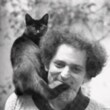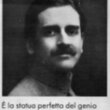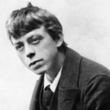The skin of dreams
Description
More Details
Clarke, Chris(Translator) translator
Fournel, Paul Author of afterword, colophon, etc
Queneau, Raymond Author
9781681377711
Similar Titles From NoveList
Similar Authors From NoveList
Published Reviews
Publisher's Weekly Review
This breezy and witty episodic novel from Queneau (1903--1976), originally published in 1944 and newly translated by Clarke, chronicles the episodic adventures of a young dreamer. Jacques L'Aumône is the son of a hosiery manufacturer in Rueil, an unexciting Paris suburb. He has an active fantasy life, projecting himself into the roles of cinematic heroes or singling out people on the street to follow, "less to learn about that person than to wear them for a few minutes." As the story unfolds, Jacques imagines a boxing career, toys with a fanciful scheme to engineer a race of giant lice, has his heart broken, and strikes out for a career in the movies. His sole abiding commitment, however, remains imagining alternate lives for himself. Within this loose bildungsroman framework, Queneau draws amusing and kindhearted portraits of those in Jacques's orbit, most memorably a cuckolded provincial poet who has an "existential illness" he calls ontalgia ("like asthma only it's more distinguished"). The occasional antiquated expression (e.g., "right in the kisser," "peepers") can make the text feel fusty, but Clarke generally has a nimble way with Queneau's wordplay and neologisms. This winning satire demonstrates the rewards of cultivating one's imagination. (Jan.)
Kirkus Book Review
In this fantasy of fantasies, an imaginative boy becomes, after a time, a successful movie star. Jacques L'Aumône, the son of a sock manufacturer, is an engineer, a loafer, a frequenter of the pictures, a dreamer. As a young man, he abandons his wife and child to join a theater troupe and pursue a string of failed romances. He is down and out in Paris before decamping to the Americas, to live among an Indigenous tribe. Eventually he reemerges as James Charity, a famous actor from the "Youessuvehh." Queneau (1903-1976) was an erstwhile surrealist--he was, in fact, an erstwhile brother-in-law of André Breton. In this novel, he's cutting closer to the bone than the surrealists, ignoring the "dreams of sleep" that fascinated Breton in favor of daydreams. These fantasies are influenced by the motion pictures Queneau adored but maintain their own inscrutable logic. There is an internal logic in the way things repeat themselves in Jacques' life, a regression line that traces the marks of his waking dreams. Queneau is an equal opportunity wordplayer. He writes sentences of real beauty: "He got to his feet, overflowing with dignity. He was soon stationed by the window. There he remained, motionless in the face of clouds and rooftops." But he's also taken by real-life language ("Shut your damn mouth, holy gawdinheaven!") and by truly lame puns (a roast is "eaten with relish, but served with mustard"). The novel's playfulness with language borrows from Joyce; its noir-isms and grand fantasies predict gangster rap. There is a refreshing lack of morality in the novel. Jacques' fantasies are not condoned, and his selfishness in making some of them real is not condemned. Read it in one sitting and find yourself more open to your own daydreams. Copyright (c) Kirkus Reviews, used with permission.
Publishers Weekly Reviews
This breezy and witty episodic novel from Queneau (1903–1976), originally published in 1944 and newly translated by Clarke, chronicles the episodic adventures of a young dreamer. Jacques L'Aumône is the son of a hosiery manufacturer in Rueil, an unexciting Paris suburb. He has an active fantasy life, projecting himself into the roles of cinematic heroes or singling out people on the street to follow, "less to learn about that person than to wear them for a few minutes." As the story unfolds, Jacques imagines a boxing career, toys with a fanciful scheme to engineer a race of giant lice, has his heart broken, and strikes out for a career in the movies. His sole abiding commitment, however, remains imagining alternate lives for himself. Within this loose bildungsroman framework, Queneau draws amusing and kindhearted portraits of those in Jacques's orbit, most memorably a cuckolded provincial poet who has an "existential illness" he calls ontalgia ("like asthma only it's more distinguished"). The occasional antiquated expression (e.g., "right in the kisser," "peepers") can make the text feel fusty, but Clarke generally has a nimble way with Queneau's wordplay and neologisms. This winning satire demonstrates the rewards of cultivating one's imagination. (Jan.)
Copyright 2023 Publishers Weekly.




























